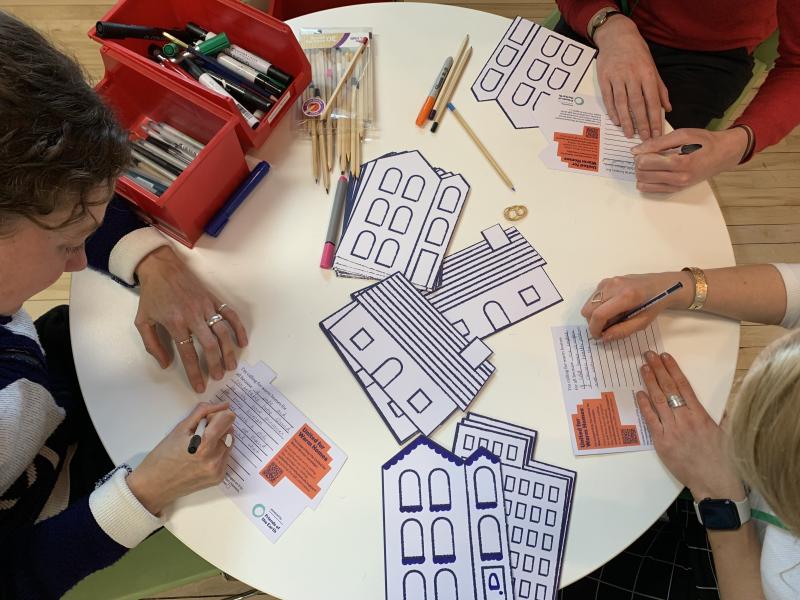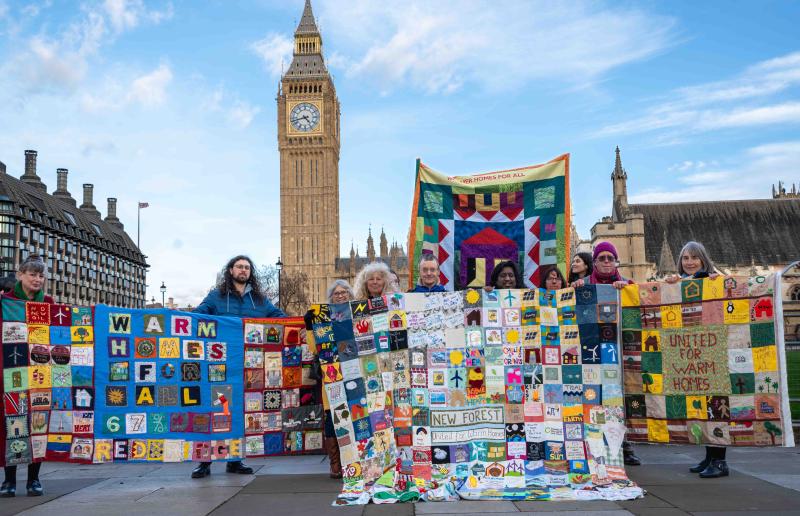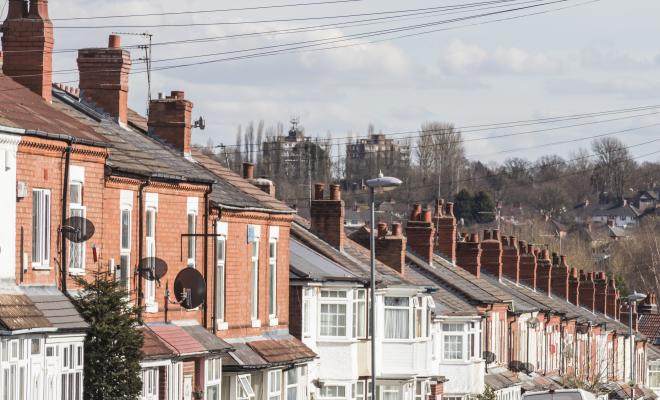16 Jan 2024
Tactics for winning political commitments
If your group is short on time, feel free to pick just one of these tactics to focus on. Make the most of these activities by having a mailing list sign-up sheet available whenever you're out in your community.
Send postcards
It’s important that our decision makers hear heartfelt messages from members of the community about why we need warm homes. We’ve created template postcards in the shape of a home which you can order and use to gather messages to send to MPs. Find out more about how to create and send postcards.
Highlight the health impacts of cold homes
No matter who you are, if you live in a cold home, your health and wellbeing are at risk. Friends of the Earth has worked with the Institute of Health Equity to produce "Left out in the cold: the hidden health costs of Britain’s cold homes," which is a report on the health impacts of living in cold homes.
The research has found that 9.6 million UK households are living in heat-leaking, badly insulated homes and have incomes below the minimum required for an acceptable standard of living. Cold homes double the risk of adults developing new mental health conditions and put 1 in 4 children at risk of multiple mental health symptoms. Read more about the report and its findings on the Friends of the Earth website, and watch a short video about the report by Professor Michael Marmot. You can also use this video to play at public events when talking about the report.
This research makes clear that urgent action is needed. You can use it to persuade your MP on the need for insulation. Here's how:
- Request a meeting with your MP to discuss the report findings and ask them how they'll take action. Use our template email to request a meeting. Don’t forget to take a look at our MP meeting guide to help you prepare once you’ve got a meeting confirmed. We’ve also prepared these talking points about the report to help keep the conversation with your MP on track.
- Share the report findings on social media using Friends of the Earth's handy share function to help make your MP and local community aware of them.
Together, we can make sure that MPs listen and take action to bring down bills, keep homes warmer, improve health and slash emissions.
Next steps after engaging your MP
Once your MP shows support for the campaign, it’s important to keep building the relationship with them. Ask them to become an active champion for the issue in your constituency and in parliament. Remember, the more they speak about the issue publicly, the more you can hold them to their promises. Encourage your MP to:
- Post their support for the campaign on their social media channels.
- Speak at an event you’re organising. Ask them to commit publicly to the campaign demands and outline how they’ll raise the issue with the rest of their party.
- Raise the issue within their party, for example with the appropriate ministers or shadow ministers.
- Raise the issue within parliament by submitting written or oral questions, meeting with influential decision makers, joining all-party parliamentary groups, hosting parliamentary events or sponsoring debates.
- Meet with your group every few months to discuss how you can continue to work together on warm homes.
- Visit a street that needs insulation and talk to residents, either door to door or via a meeting. Make sure the media are invited to interview them. Find energy crisis hotspots near you.
Reminder: the best way to convince MPs is to show the breadth and depth of support for the campaign from voters in their constituency. So, before jumping to meet with them straight away, make sure to spend time building strong local support.
Engage your local political parties
Most constituencies will have an active Conservative, Green, Labour, Liberal Democrat or Plaid Cymru local party. These can help increase support locally and advocate for the campaign demands within their national parties.
Ideally your group should seek to gain support from the local chapters of all the major political parties.
To engage your local political parties, you could:
- Offer to do a presentation at their next meeting. Many local parties allow external presentations, especially on topics of relevance to the constituency.
- Ask them to put forward a warm homes motion and/ or adopt the demands of the campaign as local party objectives.
- Ask the local party to send a letter to their local MP, regional party and national policy team encouraging them to adopt our demands.
- Ask the local party to put pressure on their local MP to advocate publicly for warm homes.
- Invite them, alongside other local parties, to actions or events you organise.
If you need any guidance on or support with engaging your politicians, please don’t hesitate to get in touch with your regional campaign organiser or email [email protected].
It is important to remain politically impartial in your campaigning, read our guidance to find out more.


